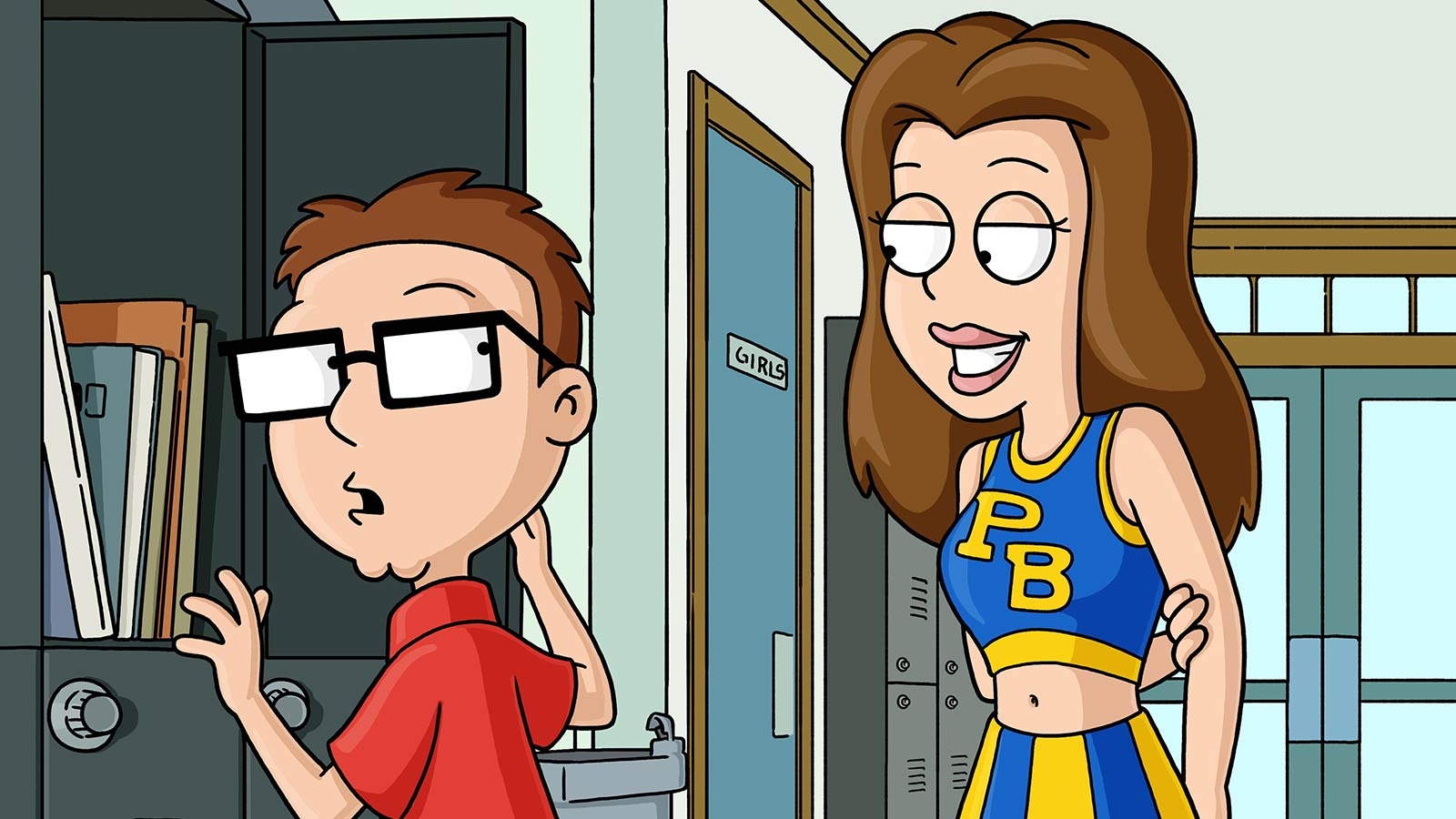
Review: American Dad! – Season 1, Episode 1: Pilot
Introduction
Premiering on February 6, 2005, American Dad! was created by Seth MacFarlane, Mike Barker, and Matt Weitzman as a satirical take on American politics, family life, and national security paranoia. With Family Guy already a massive success, many wondered if American Dad! would simply be a rehash or if it could carve out its own identity. The pilot episode, aptly titled "Pilot," introduces the Smith family and their bizarre yet hilarious dynamics, setting the stage for the show’s signature blend of political satire, absurd comedy, and sharp social commentary.
Plot Summary
The episode follows Stan Smith, a patriotic yet paranoid CIA agent who goes to extreme lengths to protect his country—and his family. His wife, Francine, is a loving but sometimes overlooked housewife, while their children, Hayley (a liberal college student) and Steve (an awkward, nerdy teenager), constantly challenge his authority.
The main storyline revolves around Stan’s obsession with national security, which leads him to believe terrorists are everywhere—even infiltrating his own son’s high school. Meanwhile, Steve tries to impress a girl, Debbie, but struggles due to his lack of confidence. Stan, in an attempt to help, rigs the school elections, leading to hilarious chaos.
In addition to the Smith family, we’re introduced to two of the show’s most iconic non-human characters:
- Roger, the alcoholic and sarcastic alien saved by Stan from Area 51, who now secretly lives in the family’s attic.
- Klaus, a talking goldfish with the mind of a German Olympic skier, whose presence adds another layer of absurdity to the household.
Characters and Performances
The pilot episode does an excellent job of establishing the show’s distinctive characters and comedic dynamics:
- Stan Smith (voiced by Seth MacFarlane): A hyper-patriotic, gun-loving, conservative CIA agent whose paranoia and outdated views often lead to absurd situations. He’s essentially an exaggerated version of the stereotypical American father, making him both frustrating and hilarious.
- Francine Smith (voiced by Wendy Schaal): A devoted wife who, unlike Family Guy’s Lois, is far more passive in the pilot but shows potential for depth as the series progresses.
- Hayley Smith (voiced by Rachael MacFarlane): A strong-willed, liberal activist who frequently clashes with her father’s conservative beliefs, setting up a key source of conflict and humor.
- Steve Smith (voiced by Scott Grimes): An insecure, nerdy teenager whose main goal is to be popular and get a girlfriend. His relationship with his overbearing father provides some of the episode’s best comedic moments.
- Roger (voiced by Seth MacFarlane): Introduced as a mysterious alien with a taste for junk food and sarcasm, Roger steals every scene he’s in. His love for disguises and human culture is hinted at early on, which later becomes one of the show’s best running gags.
- Klaus (voiced by Dee Bradley Baker): A talking goldfish with a German accent, Klaus has limited screen time in the pilot but adds to the overall absurdity of the show.
Political Satire and Social Commentary
Unlike Family Guy, which relies heavily on cutaway gags, American Dad! opts for more structured storytelling with a focus on political humor. The pilot leans into post-9/11 paranoia, mocking the idea that threats lurk around every corner. Stan’s over-the-top security measures, such as rigging a toaster to fire bullets at potential burglars, are exaggerated reflections of real-world fears at the time.
The show also satirizes government surveillance, conservative values, and teenage rebellion, with Stan embodying extreme nationalism while his daughter Hayley represents the opposing liberal ideology. Their father-daughter clashes provide a sharp comedic contrast that remains a staple of the series.
Humor and Absurdity
The humor in American Dad! is a mix of:
- Political satire – Mocking everything from national security measures to government overreach.
- Absurdity – Roger, an alien living in a suburban attic, is already a ridiculous concept, but his deadpan sarcasm and human-like behavior make it even funnier.
- Physical comedy – Stan’s CIA gadgets and violent paranoia result in some hilarious action sequences.
- Family dynamics – The Smith family’s dysfunctionality feels both exaggerated and strangely relatable.
One of the standout comedic moments in the episode is when Stan rewards Steve for winning the school election (after rigging it) by giving him a dog—only for the dog to immediately get shot by the toaster trap he set earlier. This kind of dark, unexpected humor sets American Dad! apart from typical animated sitcoms.
Animation and Style
Visually, the animation is clean, colorful, and slightly more refined than early Family Guy episodes. The character designs are distinctive, with Stan’s massive square jaw and Roger’s wide-eyed, grey alien appearance giving them an instantly recognizable look. The backgrounds are simple but effective, making the Smith household feel like a grounded yet exaggerated setting for the show’s wild antics.
Final Verdict
As a pilot, "Pilot" effectively establishes American Dad! as a show with its own unique identity, separate from Family Guy. While some of the humor feels similar to MacFarlane’s other work, the structured storytelling, strong character dynamics, and sharp political satire give it a distinct feel.
The biggest strengths of the episode are its:
Strong introduction to the Smith family and their unique dynamics
Clever satire of post-9/11 American paranoia
Well-executed absurd comedy and dark humor
Memorable introduction of Roger, one of the show’s most beloved characters
However, the episode does have some weaknesses:
Some jokes feel predictable or recycled from Family Guy
Francine’s character is underdeveloped in the pilot compared to later episodes
Despite these minor flaws, American Dad! starts strong and shows great potential for future episodes. Over time, the series would evolve into something even funnier and smarter, with characters like Roger and Steve becoming the true comedic highlights.
Score: 8.5/10
A strong, funny, and promising pilot that sets the stage for one of the most unique animated sitcoms on television.
- Hits: 70

































